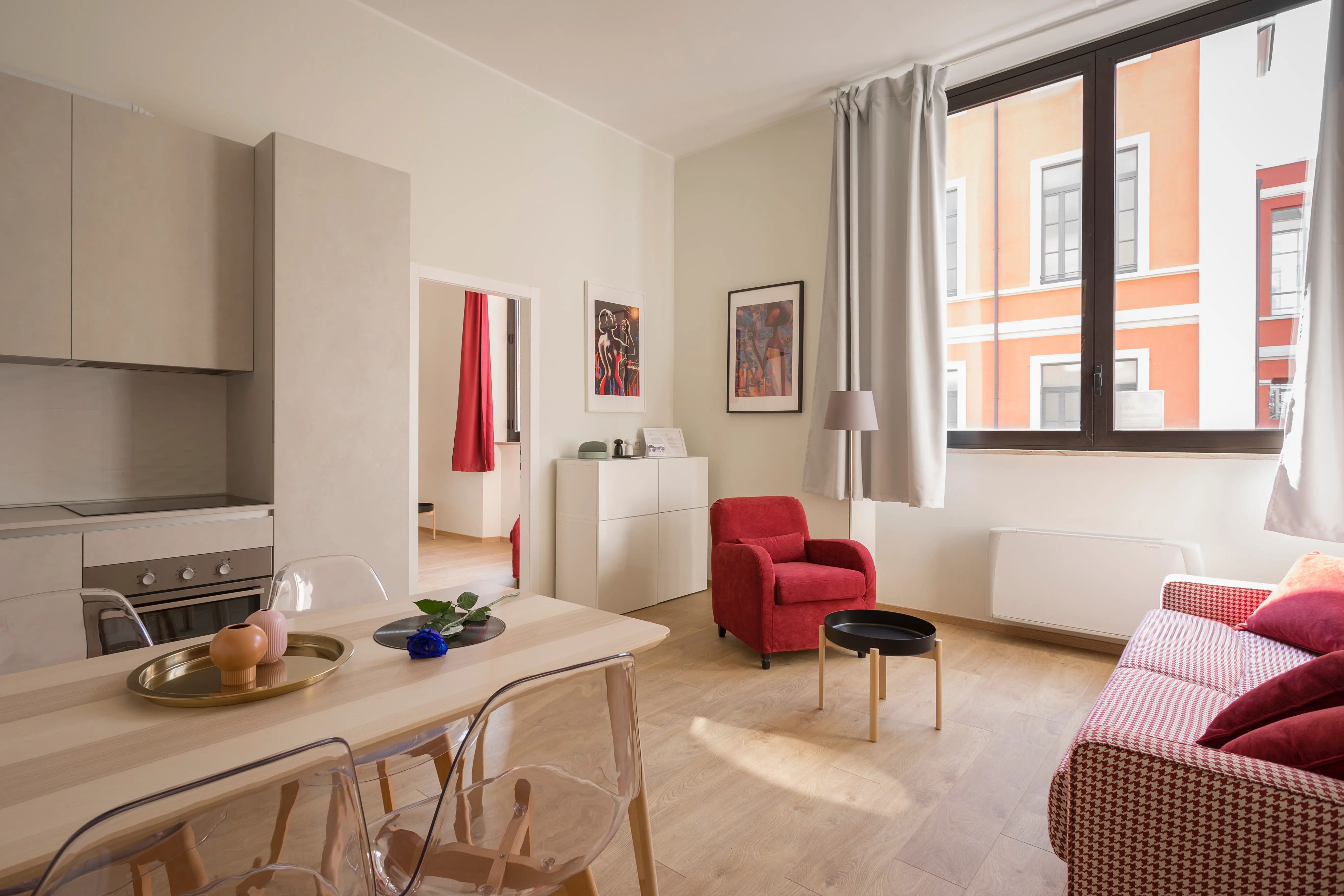
House, home, abode, crib, pad, digs—there are a lot of different words we use to describe the places we live, and most of them have pretty straight forward origins. However, the etymology of some of these terms is a little less obvious; flat, for example. When and how did the term “flat” come to mean an apartment and why are they called such?
Apartments are called flats because of a word passed down from Old English, “flett,” meaning flat, or all on one level. The word “flett” has a long linguistic lineage from the Proto-Germanic languages and was used as a term for a dwelling as well as referring to the characteristic of being flat.
In this article, we will take a look at some of the evidence that linguists use to derive the origins of the word flat as well as give some basic background information on the languages from which this word is derived. We will also take a look at the common usage of the word, what it means, and some technical distinctions between other similar terms. If you have ever wondered why apartments are called flats, read on.
Quick navigation
A Hodge Podge and Borrowed Tradition
Language is not a static system; it is always changing with new words entering the lexicon and old ones being tossed to the wayside. It is this ever-evolving nature of language that is responsible for the word flat being used interchangeably with an apartment in the United States as well as its more specific use in the United Kingdom.
Germanic Origins
Flat
English is a member of the Germanic language family that also includes Dutch, Geman, and Norse languages like Swedish and Norwegian. From their shared ancestor language, the precursor to English emerged: Old English.
In Old English, the term flet/flett had the same meaning as the modern word flat, referencing a domicile as well as being a word to describe a horizontal and level surface or landscape.
This term remained unchanged as the language evolved into its next incarnation, Middle English. Eventually, Middle English split into what would become modern English and the distinct Scots language.
The shared origins of these two languages are visible in the continued usage of the term flat in modern times. Although, Scots retains the older spelling, flet, while English transitioned to the spelling we see today.
This relationship is further born out by the fact that the word carries the same alternate meaning in both languages. In modern English as well as in Scots, flat/flet means a dwelling as well as being used to describe the characteristic of being flat.
It is also worth noting that the term flat is also used commonly in Dutch to refer to an apartment. However, whether this is due to the shared ancestry of the languages or is simply a borrowed word that has worked its way into the lexicon, remains a matter of debate.
Apartment
The word apartment, on the other hand, has more recent origins in the English language. The use of the word apartment to describe an independent dwelling within a larger structure made up of similar units comes from the Italian word appartimento and the French word appartement. Both words mean “a separate place,” which makes sense, given the dwellings they describe.
There is a consensus among scholars on the origins of this word in the English language, making it an excellent example of a borrowed word with origins in another language that has been fully adopted into the lexicon.
Modern Usage
Now that we understand where the term comes from, we can take a look at how flat is used in everyday language in both England and the United States. While there are hundreds of funny differences between American English and British English, the word flat is a great example that highlights these peculiarities.
Subtle Differences: U.S. vs. U.K.
In the United States, when the term flat is used to describe a dwelling, it is typically a general word for all apartments. It could be a one-room studio, two-story apartment, or loft space in a repurposed factory. If it is a self-contained dwelling within a larger building, it can be called a flat.
It is also worth noting that while the word flat has become more common in the United States in recent years, most Americans still use the term apartment in general conversation.
In the United Kingdom, on the other hand, the language used to describe different types of independent dwellings within a shared building is a bit more nuanced.
The term flat has origins referencing the style and layout of the dwelling it describes. As such, a flat generally refers to a dwelling that is all on a single level; hence it is “flat.” A flat is also situated within a larger building that comprises multiple units of some degree of similarity.
Alternatively, a dwelling that has multiple floors but is still part of a larger structure is often referred to as a maisonette in the United Kingdom. A home also must have a private door to the outside to be considered a maisonette. A flat, on the other hand, has a front door that opens to a shared hallway that leads to the outside.
In the United States, a maisonette would often still be referred to as an apartment, although rowhouse is another term used to describe these types of homes.
There is another linguistic distinction between these dwellings used in the United Kingdom. While an apartment in the United States generally refers to any multi-room dwelling within a building that consists of other similar units, in the U.K., the word apartment takes on added meaning.
Economic Distinction
There is also an economic element that comes into play when discussing these dwellings in the United Kingdom. A flat is generally considered the lowest rung in the habitation hierarchy, whereas the term apartment is almost always used to refer to up-scale flats.
While the technical definition of the dwelling is the same–a single unit within a larger building–in the U.K., an apartment is a more luxurious and expensive version.
In the U.S., a million-dollar apartment could still reasonably be called a flat. However, in the U.K. this would almost certainly be referred to as an apartment. In the U.K., the word apartment is also commonly used to refer to a holiday home or secondary dwelling of the well to do. This is another distinction in the United Kingdom that hasn’t made the leap over to American English.
Mutually Intelligible
As you can see, the majority of distinctions between flats and apartments are simply differences between dialects. While an English person may look at the broad use of the term flat in the United States as an unsuitable Americanism, they would certainly know that they are referring to some sort of apartment.
In the United States, the term flat has gained usage recently; however, you might still catch quizzical glances from people when you invite them over to your flat for dinner.
Conclusion
Human language is a fascinating phenomenon that shapes the way we see the world. Even the seemingly mundane elements, like why an apartment is called a flat, can uncover interesting facts that demonstrate the complex and evolving nature of the way we communicate with each other.
The origin of the use of flat when referring to an apartment is ancient, but thanks to the work of linguists, we can trace the etymology back to our shared linguistic ancestors and gain a better understanding of language.




